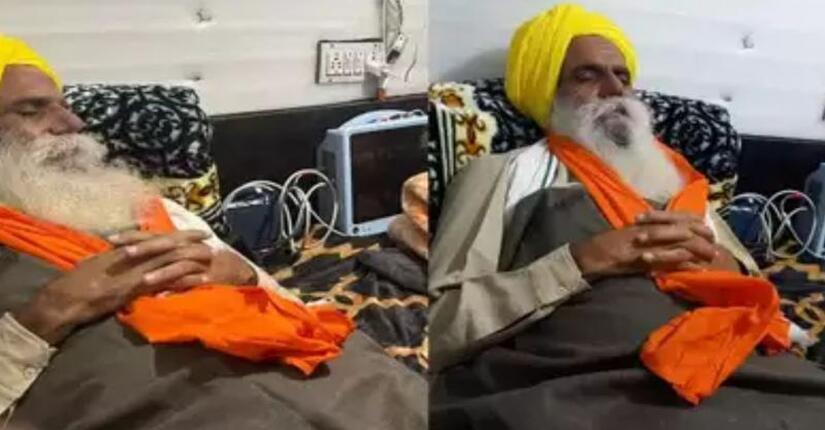Farmers’ Movement Returns: Dallewal’s Fast Shakes Delhi
Delhi finds itself at the center of turmoil once again as the farmers’ movement regains momentum. This time, the situation has become even more precarious due to the indefinite fast undertaken by Bharatiya Kisan Union (BKU) leader Jagjit Singh Dallewal. His protest has escalated the agitation, bringing renewed attention to the unresolved issues plaguing India’s agricultural sector.
The Return of the Farmers’ Movement
The resurgence of the farmers’ movement has revived memories of the massive protests that shook Delhi in 2020-2021. Farmers, primarily from Punjab, Haryana, and Uttar Pradesh, have converged on the capital, determined to press their demands. The protests, which were initially sparked by the controversial farm laws, now focus on unfulfilled promises, including a legal guarantee for Minimum Support Price (MSP) and other critical agricultural reforms.
Protest sites such as Singhu and Tikri borders are once again filled with tents, tractors, and resolute voices. The sight of thousands of farmers mobilizing underlines their determination to continue the struggle for their rights.
Dallewal’s Fast: A Flashpoint
Adding urgency to the agitation is the indefinite fast declared by Jagjit Singh Dallewal, a prominent leader of the Bharatiya Kisan Union. Dallewal’s fast has become a rallying cry for the farming community, symbolizing their frustration and steadfast commitment to their demands. However, his deteriorating health is a growing concern, with many warning of the potentially dire consequences of his prolonged hunger strike.
Dallewal’s decision to undertake this extreme step reflects the deep-seated discontent among farmers. “This fast is not just about me,” Dallewal stated in a recent address. “It is about the future of our farmers, our children, and our dignity.” His words have resonated with protesters, further strengthening their resolve.
Government’s Response: A Delicate Balancing Act
The government’s response to the renewed farmers’ movement has been measured but firm. Union Agriculture Minister Narendra Singh Tomar has urged the farmers to engage in dialogue, emphasizing the government’s willingness to address their concerns. However, the farmers’ distrust, rooted in past experiences, has made negotiations challenging.
Security has been ramped up across Delhi to prevent disruptions. Barricades, water cannons, and a heightened police presence have become a common sight around protest sites. While authorities claim these measures are precautionary, they also signal the administration’s preparedness to deal with potential escalations.
Key Issues at the Heart of the Protest
The protests have once again brought unresolved agricultural issues to the forefront. Farmers’ demands include:
- Legal Guarantee for MSP: Farmers insist that a legally binding MSP is essential to protect them from market fluctuations and exploitation.
- Debt Relief: Many farmers face crippling debt, exacerbated by rising input costs and climate-related challenges.
- Sustainable Farming Practices: There is a growing demand for subsidies and incentives to encourage eco-friendly farming.
The lack of tangible progress on these issues has fueled anger and disappointment among the farming community, compelling them to return to the streets.
Public Sentiment: Divided and Concerned
The resurgence of the farmers’ movement has evoked mixed reactions from the public. While many empathize with the farmers’ plight and support their demands, others express frustration over the disruptions caused by the protests. Commuters face traffic snarls, businesses are impacted, and the heightened security measures create an atmosphere of tension.
Social media platforms have become battlegrounds for debates, with hashtags like #FarmersProtest and #SupportDallewal trending. While supporters highlight the importance of standing with the farming community, critics argue that prolonged protests hinder governance and disrupt everyday life.
Political Reactions
Political leaders have been quick to weigh in on the situation. Rahul Gandhi and Priyanka Gandhi Vadra have reiterated their support for the farmers, accusing the government of ignoring their concerns. Delhi Chief Minister Arvind Kejriwal has also called for a resolution, urging the central government to prioritize dialogue over confrontation.
On the other hand, BJP leaders have emphasized the government’s commitment to reforms, accusing opposition parties of politicizing the issue. The political discourse surrounding the protests adds another layer of complexity to an already tense situation.
The Road Ahead
The ongoing agitation and Dallewal’s fast pose significant challenges for both the government and the farming community. Resolving the crisis will require trust-building measures and meaningful engagement. Experts suggest the following steps:
- Formation of a Mediation Committee: Involving neutral stakeholders like agricultural experts and community leaders could facilitate constructive dialogue.
- Clear Timelines for Reforms: Providing a roadmap for addressing key demands can help rebuild trust.
- Empathy and Patience: Both sides must prioritize a peaceful resolution, keeping the larger interests of the nation in mind.
Conclusion
The renewed farmers’ movement and Dallewal’s fast have cast a perilous shadow over Delhi, underscoring the deep-seated challenges facing India’s agricultural sector. As the nation watches, the need for empathetic governance and collaborative solutions has never been more urgent. The outcome of this agitation will not only shape the future of India’s farmers but also set a precedent for resolving grassroots movements in a democracy.


0 Comment